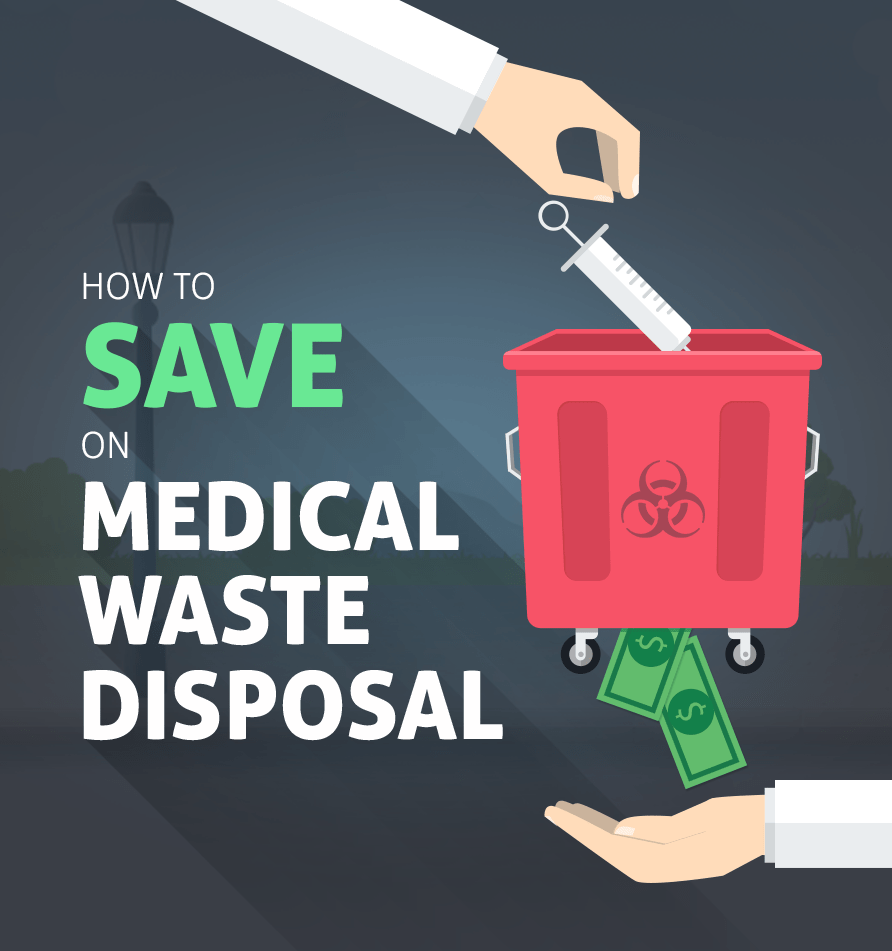Liable Solutions: Understanding Medical Garbage Disposal Provider
In the world of medical care, the proper disposal of clinical waste is an important facet that requires mindful factor to consider. As medical care centers produce numerous types of waste that require customized handling, comprehending the nuances of medical waste disposal services is critical.
Value of Appropriate Medical Waste Disposal
Proper clinical waste disposal is crucial in maintaining a hygienic and secure environment within medical care facilities. In health care setups, various types of waste are generated daily, consisting of contagious products, sharps, expired medications, and chemical compounds.

Kinds of Clinical Waste
Within health care facilities, a diverse range of waste materials categorized as clinical waste is created, each calling for certain handling and disposal techniques. Pathological waste, which includes tissues, body organs, and body components, necessitates proper disposal to appreciate the self-respect of the dead and prevent any kind of biohazards. Understanding the different types of medical waste is critical for health care centers to carry out effective waste management methods and protect public health and wellness and the atmosphere.
Regulations and Conformity
Healthcare facilities need to abide by stringent guidelines regarding the handling and disposal of medical waste to make certain compliance with lawful demands and protect public health and wellness. These policies are implemented to stop the spread of infections, shield the setting, and keep the safety of health care employees and the general public. Numerous governing bodies, such as the Epa (EPA), the Occupational Safety and Health Administration (OSHA), and the Department of Transportation (DOT), have certain guidelines that medical care centers must comply with.
To adhere to these laws, medical care facilities must correctly segregate, shop, transportation, and take care of various sorts of medical waste. This includes sharps waste, transmittable waste, contaminated materials, and pharmaceutical waste, each needing specific dealing with procedures. Facilities needs to also preserve accurate documents of waste generation and disposal to show compliance throughout assessments.
Non-compliance with medical waste regulations can result in serious charges, penalties, and damage to the center's online reputation. Therefore, it is necessary for healthcare facilities to stay informed regarding the latest laws and apply robust conformity steps to shield public health and wellness and the atmosphere.
Advantages of Expert Disposal Services
Involving expert medical garbage disposal services supplies healthcare centers a efficient and trusted remedy for taking care of harmful products. By outsourcing this crucial job to experts, medical care facilities can make certain compliance with regulations while concentrating on providing top quality care to people. One of the essential benefits of professional disposal services is the competence they give the table. These solutions use qualified specialists who are fluent in handling various kinds of clinical waste, making sure proper partition, product packaging, transportation, and disposal.
In addition, professional disposal solutions utilize modern devices and follow sector ideal practices to decrease environmental impact and lower the threat of contamination. This not just advertises a more secure workplace for medical care team however also contributes to general public health and security. Additionally, contracting out medical garbage disposal can bring about set you back financial savings in the future by eliminating the need for in-house administration and disposal systems.
Lasting Practices in Medical Care

One key lasting method in health care is waste decrease. By executing strategies to minimize unneeded product packaging, single-use items, and general waste generation, healthcare facilities can dramatically reduce the quantity of waste sent out to garbage dumps or incineration. Furthermore, reusing programs for products like glass, paper, and plastic can better lower the environmental effect of medical care operations.
Final Thought
To conclude, correct medical garbage disposal is important in preserving a risk-free and healthy and balanced atmosphere for both health care workers and the public. Understanding the different kinds of medical waste, following guidelines and compliance criteria, and making use of expert disposal solutions are vital actions in responsible waste administration. By adopting sustainable techniques in healthcare facilities, we can reduce ecological influence and guarantee the well-being of all individuals associated with the healthcare sector.
As health care centers produce different kinds of waste that require customized handling, comprehending the subtleties of medical waste disposal services is critical.Within health care facilities, a varied selection of waste products classified as clinical waste is created, each requiring certain handling and disposal methods. Recognizing the various kinds of clinical waste is vital for Recommended Reading medical care facilities to implement efficient waste administration techniques and safeguard public wellness and the atmosphere.
By implementing strategies to lower unneeded packaging, single-use things, and total waste generation, health care centers can significantly reduce the amount of waste sent out to garbage dumps or incineration. Recognizing the different kinds of clinical waste, complying with regulations and conformity standards, and utilizing specialist disposal services are crucial steps in liable waste administration.